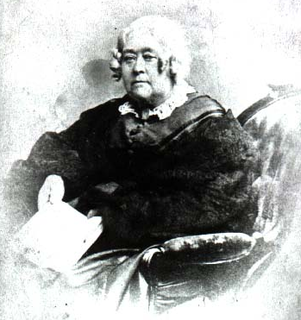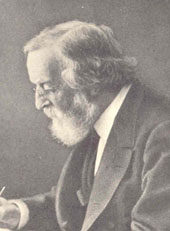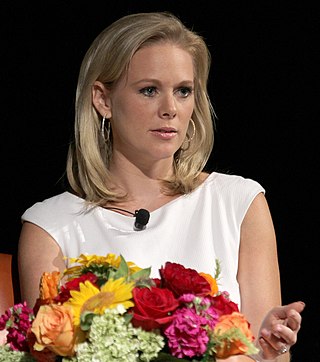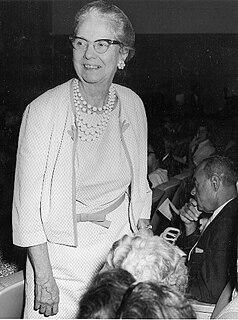
Elizabeth Palmer Peabody was an American educator who opened the first English-language kindergarten in the United States. Long before most educators, Peabody embraced the premise that children's play has intrinsic developmental and educational value.
Brent is an Old English place name and surname. The place name can be from Celtic words meaning "holy one", or "high place", literally, "from a steep hill". The surname often indicates that one's ancestors lived in a place called Brent.
The history of feminism comprises the narratives of the movements and ideologies which have aimed at equal rights for women. While feminists around the world have differed in causes, goals, and intentions depending on time, culture, and country, most Western feminist historians assert that all movements that work to obtain women's rights should be considered feminist movements, even when they did not apply the term to themselves. Some other historians limit the term "feminist" to the modern feminist movement and its progeny, and use the label "protofeminist" to describe earlier movements.

James Freeman Clarke was an American theologian and author.
Women have engaged in philosophy throughout the field's history. While there were women philosophers since ancient times, and a relatively small number were accepted as philosophers during the ancient, medieval, modern and contemporary eras, particularly during the 20th and 21st century, almost no woman philosophers have entered the philosophical Western canon.

Laura Clay, co-founder and first president of the Kentucky Equal Rights Association, was a leader of the American women's suffrage movement. She was one of the most important suffragists in the South, favoring the state’s rights approach to suffrage. A powerful orator, she was active in the Democratic Party and had important leadership roles in local, state and national politics. In 1920 at the Democratic National Convention, she was one of two women, alongside Cora Wilson Stewart, to be the first women to have their names placed into nomination for the presidency at the convention of a major political party.

Woman in the Nineteenth Century is a book by American journalist, editor, and women's rights advocate Margaret Fuller. Originally published in July 1843 in The Dial magazine as "The Great Lawsuit. Man versus Men. Woman versus Women", it was later expanded and republished in book form in 1845.
The World Curling Tour is a group of curling bonspiels featuring the best male, female, and mixed doubles curlers in the world.

Margaret Claire Hoover is an American conservative political commentator, political strategist, media personality, feminist, gay rights activist, author, and great-granddaughter of Herbert Hoover, the 31st U.S. President. She is the best-selling author of the book American Individualism: How A New Generation of Conservatives Can Save the Republican Party, published by Crown Forum in July 2011. Hoover is currently host of PBS's reboot of the conservative interview show Firing Line.
Megan Marshall is an American scholar, writer, and biographer.

Margaret Theresa Prosser, Baroness Prosser is a Labour life peer.
Sarah Fuller may refer to:
This is a timeline of women in the history of America, noting important events relevant in American women's history. For a detailed timeline of individual American women's firsts, see the List of American women's firsts.

Lavinia Margaret Engle was an American suffragette and politician. She was a member of the Maryland House of Delegates and Montgomery County Board of Commissioners, leader of the National American Woman Suffrage Association and Maryland League of Women Voters, and held positions within the Social Security Administration.

Pauline Agassiz Shaw was an American philanthropist and social reformer who opened day nurseries, settlement houses, and other establishments in Boston to help new immigrants and the poor. She financed public kindergartens, and co-founded America's first trade school, the North Bennet Street School. She was also a vocal advocate for women's rights.
The Boston Women's Heritage Trail is a series of walking tours in Boston, Massachusetts, leading past sites important to Boston women's history. The tours wind through several neighborhoods, including the Back Bay and Beacon Hill, commemorating women such as Abigail Adams, Amelia Earhart, and Phillis Wheatley. The guidebook includes seven walks and introduces more than 200 Boston women.
Labor feminism is a term used for a movement in the United States that emerged after women gained the right to vote. Labor feminists advocated for protectionist legislation and special benefits for women. They helped pass state laws regulating working conditions for women, expanded women's participation in unions, and organized to oppose the Equal Rights Amendment.









